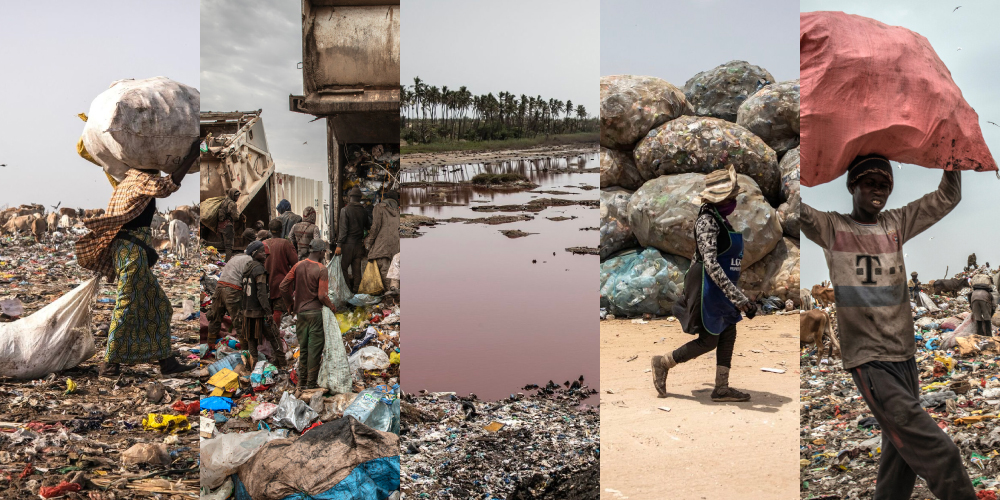Mbeubeuss's landfill

Spread over 115 ha, the Mbeubeuss landfill receives about 3,000 tons of waste from the Dakar region. Active since 1968, the Mbeubeuss landfill, like all the landfills in Senegal, has an economic activity with more than 2,000 souls looking for a living through recovery activities and recycling initiatives.
PROMOGED, with the implementation of the project of resorption of the dump, focuses on 3 aspects:
Physical :
The Mbeubeuss landfill is changing its face with the installation of streetlights to light up the landfill and facilitate night work. The limitation of access with prior identification, the development of the access track over 1.5 km with paving as well as the installation of a video surveillance system are all actions that promise security and organization of the life of the Mbeubeuss dump.
The developments and the realization of infrastructures endow the landfill with other functions than burying. These are the sorting, recovery and marketing infrastructures.
Socio-economic :
All the people affected by the project of resorption of the dump will see themselves restoring their means of subsistence. Support will be provided to all economically active people at the Mbeubeuss landfill whose livelihoods are affected by the rehabilitation of the landfill.
The development of the ecopark gives a new lease of life to the landfill with a playground, health area, sports course, green space. The rehabilitation is also the creation of employment through new channels of recovery in addition to those that already exist.
Also, it is also noted the will to allow the reclaimers to work in improved conditions and respecting human dignity. To this end, 30 mobile toilets and personal protective equipment are made available to them.
Support to the community:
The Mbeubeuss landfill is located in the department of Keur Massar, hence the extension of PROMOGED's social responsibility to the polarized communities. The mobilization of technical and financial means to assist the populations in terms of health, education, etc. These actions outside the boundaries of the landfill are the distribution of tables and benches, the opening of a crèche, the support to the Koranic school, the provision of regulatory dustbins in revolving credit to women's groups.
All of its actions in the Mbeubeuss dump and in the department of Keur Massar are underpinned by a vast communication activity aimed at sharing information, encouraging support and changing behavior.
The major challenge is the cohabitation between workers and users of the landfill during the works. The major innovation of this landfill reclamation project is that Mbeubeuss will not be closed throughout the rehabilitation process, unlike what was done before.

